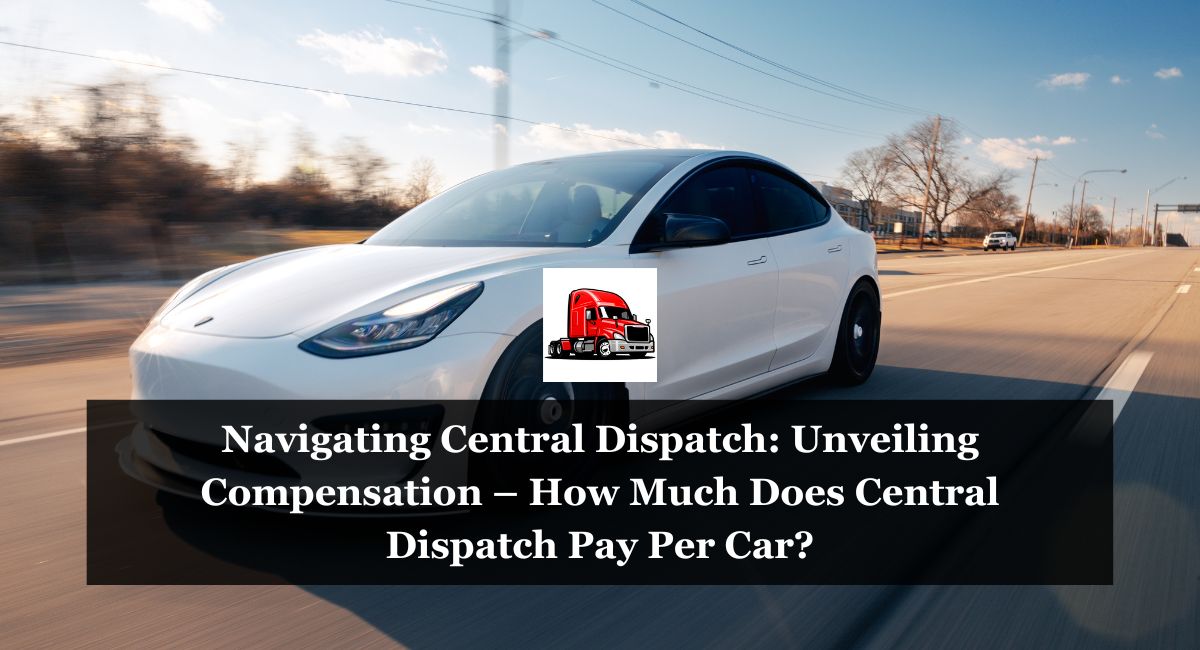Embarking on a journey into vehicle transportation often involves partnering with Central Dispatch, a prominent platform connecting shippers and carriers. One of the most crucial aspects for carriers is understanding the compensation structure, specifically, how much Central Dispatch pays per car.
In this blog, we’ll explore the factors influencing pay and shed light on what carriers can expect.
Understanding Central Dispatch
Central Dispatch is a widely used online platform within the auto transport industry that connects vehicle shippers with car carriers.
Established as a centralized marketplace, Central Dispatch streamlines finding and securing transportation services for individuals, dealerships, and businesses looking to move vehicles across various distances.
The platform operates on a subscription-based model. It allows carriers and shippers to join and access a vast network of potential business opportunities. From individual owner-operators to large fleet companies, carriers can use Central Dispatch to find available shipments, negotiate rates, and efficiently plan routes.
Conversely, shippers benefit from a simplified process of locating reliable carriers, comparing quotes, and managing transportation logistics.
Central Dispatch does not dictate pricing; it serves as a neutral marketplace where carriers can set their rates based on distance, vehicle type, and market demand.
The platform enhances efficiency in the auto transport industry by providing a centralized hub for communication and transactions, fostering a more competitive and accessible environment for carriers and shippers.
Factors Affecting How Much Does Central Dispatch Pay Per Car
Let us discuss some of the essential factors affecting how much central dispatch pays per car.
- Central Dispatch Overview
Central Dispatch operates as an online marketplace, facilitating the connection between shippers needing vehicle transportation and carriers equipped to handle the job. As carriers navigate this platform, questions about compensation inevitably arise, especially concerning the pay per car.
- Variable Rates Based on Factors
The compensation for transporting a car through Central Dispatch is not fixed. Instead, it varies based on several factors. These include the distance of the transport, the type of vehicle being shipped, the urgency of the shipment, and current market conditions.
- Distance Matters: Short Haul vs. Long Haul
The distance a car needs to travel is a significant determinant of pay. Short-haul routes may have a different pay structure compared to long-haul journeys. Carriers should consider these variations when calculating potential earnings per car.
- Vehicle Type and Specifications
The type of vehicle being transported also affects compensation. More extensive or specialized vehicles may command higher pay due to the unique requirements and challenges associated with their transport. Carriers should factor in these considerations when quoting prices.
- Urgency and Expedited Shipping
Shippers often have varying levels of urgency when it comes to transporting vehicles. Carriers who can accommodate expedited shipping requests may receive higher compensation due to the time-sensitive nature of the shipment. Flexibility can be a critical factor in maximizing earnings.
- Market Conditions and Demand
The dynamic nature of the transportation industry means that market conditions and demand can influence compensation rates. Carriers should stay informed about industry trends to adapt to changing circumstances and make informed pricing decisions.
- Central Dispatch Fee Structure
Central Dispatch itself charges fees for using its platform. Carriers must be aware of these fees, which impact the overall compensation. However, the fees are separate from the amount negotiated with the shipper for transporting a specific car.
- Negotiation Power of Carriers
Carriers on Central Dispatch can negotiate prices directly with shippers. This negotiation power allows carriers to advocate for fair compensation based on the specifics of the transport job. Effective communication and understanding of the factors influencing pay are crucial during this negotiation process.
- Maximizing Earnings Through Efficiency
Efficiency plays a significant role in maximizing earnings. Carriers who can optimize routes, manage timelines effectively, and maintain a reliable track record may be better positioned to negotiate favorable compensation for each car transported.
- Realizing Profitability: The Bottom Line
Understanding how much Central Dispatch pays per car is a multifaceted process. Carriers must consider distance, vehicle type, urgency, market conditions, and negotiation skills. By navigating these factors strategically, carriers can realize profitability while providing valuable transportation services.
Also Read: How Long Does It Take for Diesel to Gel?
Conclusion: A Roadmap to Success with Central Dispatch
For carriers navigating the landscape of Central Dispatch, the question of how much they pay per car is pivotal. By embracing a comprehensive understanding of the variables, including distance, vehicle type, urgency, market conditions, and negotiation power, carriers can pave the way to success on this dynamic platform.
As the transportation industry evolves, staying informed and adaptable is critical. Carriers who grasp the nuances of compensation on Central Dispatch position themselves for monetary success and a reputation as reliable and efficient partners in the vehicle transportation journey. Happy hauling!

